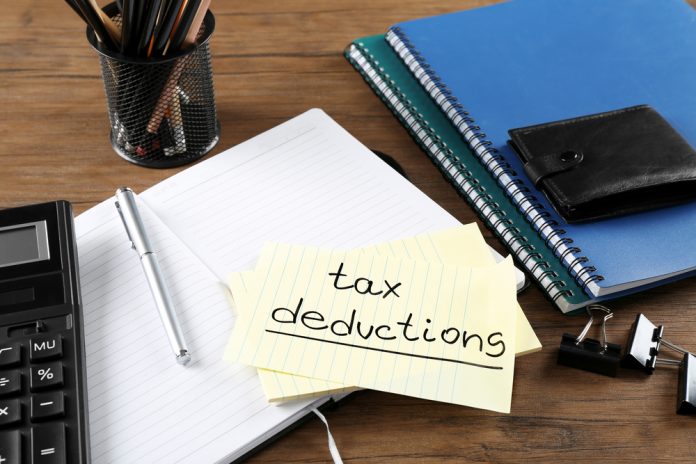Today a lot of small business owners work from home. It was always an important trend, but right now there is obviously a massive shift toward this lifestyle. Therefore, it is essential to understand what can be deducted when so much is happening at home. For instance, can you deduct your 10 am coffee, and your gas when you drive to mail a UPS package? Also how do you set up a home office that the IRS will approve?
As you run your small business from home, you really need to understand what deductions exist along with how they work. That’s why I wanted to share the following five deductions that you should be aware of.
Home Office
It is generally known that having a home office can bring a special deduction, but the way that deduction works is often not so intuitive.
To be considered a home office by the IRS, an area of your home needs to be solely allocated to your professional activity. It should not be a space intended for multiple activities. It also needs to be your primary place of business. This means that you don’t conduct substantial management or administrative activities at another location.
There are two ways to calculate the home office deduction:
- The simplified method where you write off $5 per square foot per year up to 300 square feet ($1,500).
- The regular method, which takes into account the square footage of your entire home and its costs in relation with the size of your office space.
You should be able to prove to the IRS that your office is exclusively allocated to working.
Also, you cannot deduct your food and coffee at home, except if it is a real business lunch or dinner, with an employee or a client for instance. In which case, you can deduct 50% of that meal.
Equipment and Supplies
Equipment and supplies encompass every item you use for working. Supplies are items typically used within a year, whereas equipment are more permanent objects that need to be depreciated and the cost spread over their lifetime—except if it costs less than $2,500, then the deduction can be counted in the current year.
Equipment and supplies do not have to be exclusively used for business to be deducted. If you also use it for personal reasons, these items are then called “listed property,” and you will have to calculate the percentage of use for business.
Please note that business equipment and supplies have to be bought with your business bank account. But, this alone won’t prove that it was bought for business usage.
Internet and Phone
You can also deduct your internet and phone bills but only the part directly related to your business activity. As you are working from home, you will have to evaluate the percentage of time spent using these services for work and add direct business expenses like the cost of an app for example.
If you have a phone that is exclusively dedicated for work, you can deduct the entire amount of the bill.
Utilities
When your office is at home, utilities such as electricity and water become business expenses. The percentage of space the home office occupies in your home will determine the part of your utility bills that can be expended.
Auto
Driving your car may also be a business expense. When a vehicle is exclusively used for business, it is pretty simple: every cost associated with it is expendable. However when the car is also for personal use, only parts of the expenditures are deductible— time spent driving for business needs to be recorded separately. Below are listed the two methods you can choose from for auto deduction:
- The standard calculation: For 2020, 57.7 cents per mile driven for business. You can use a smartphone app to easily track your mileage.
- The actual-expense calculation: All your car expenses can be taken in account in this instance. You then divide your yearly expense by the percentage of time you used your car for business. It may be a bit difficult to keep track of everything (insurance, parking fees, etc.), but it may be the best option for you.
Conclusion and QBI
Even small expenses can become pretty substantial when added up for an entire year, so it is a good practice for a small business owner who works from home to understand how to separate personal and professional, and deduct what they can
I also wanted to add a note on a deduction that applies to small business owners— working from home or not—that is very noteworthy: the QBI deduction.
This is a massive 20 percent deduction available for qualifying pass-through businesses and qualifying business income:
- A pass-through business is not subject to the corporate income tax, but instead income is reported on the individual income tax returns of owners.
- A qualified business income is equal to the derived income from a pass-through business minus any net capital gains or short-term capital losses.
To benefit, a single filer cannot earn more than $160,700 a year and joint filers more than $321,400.
This deduction can become complex when you dive into the details, and the help of a tax professional can be useful.
Find a Home-Based Business to Start-Up >>> Hundreds of Business Listings.
















































